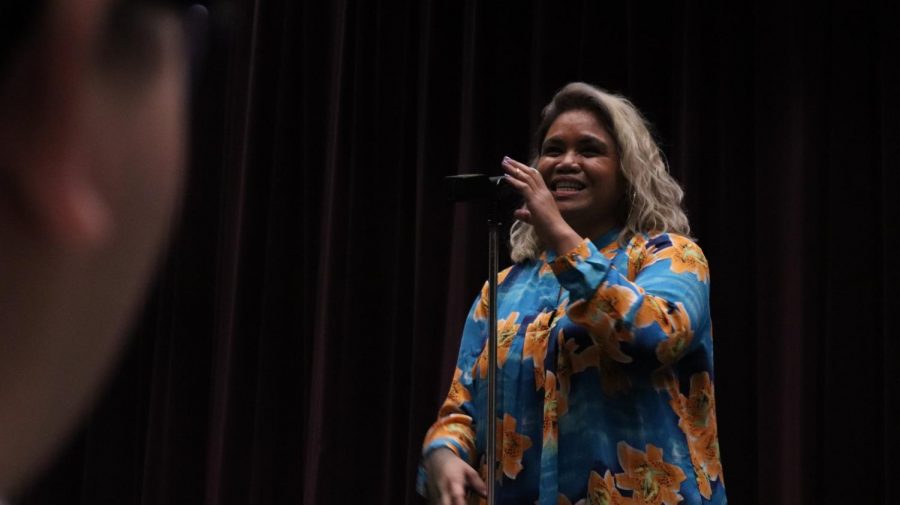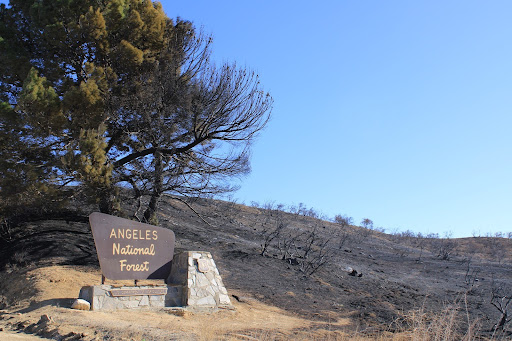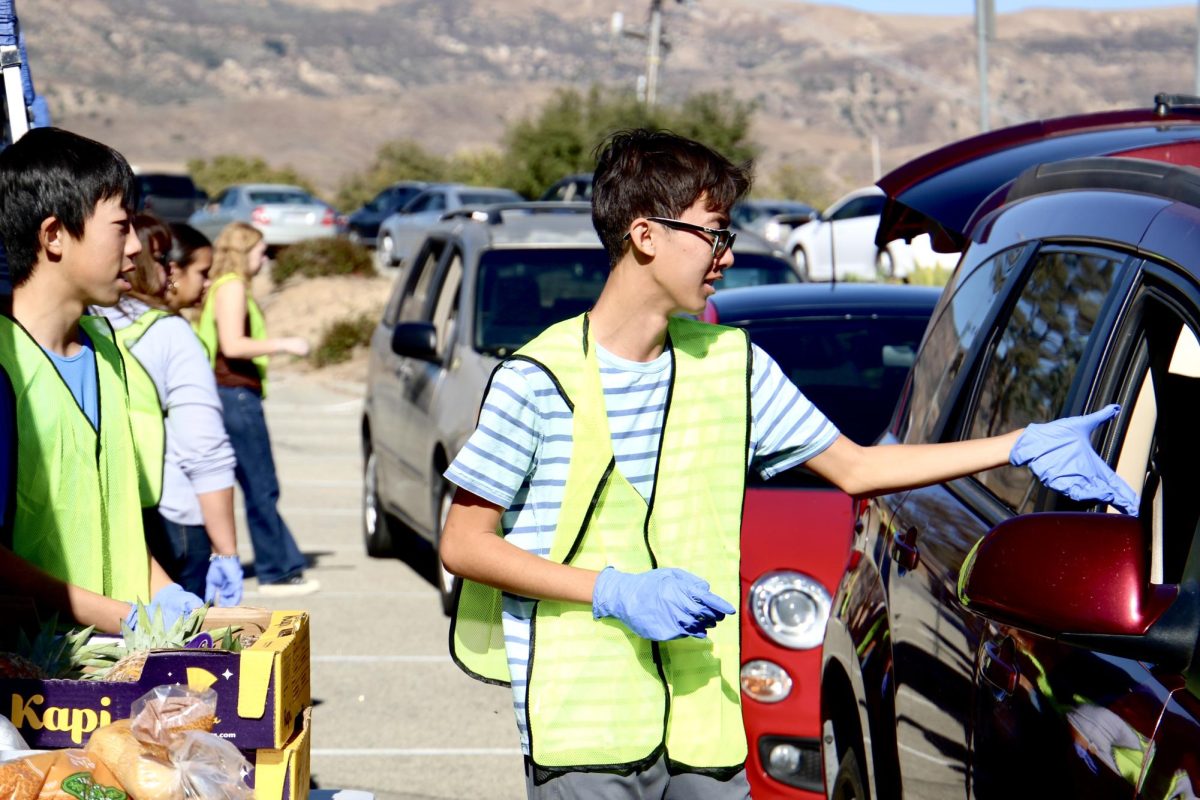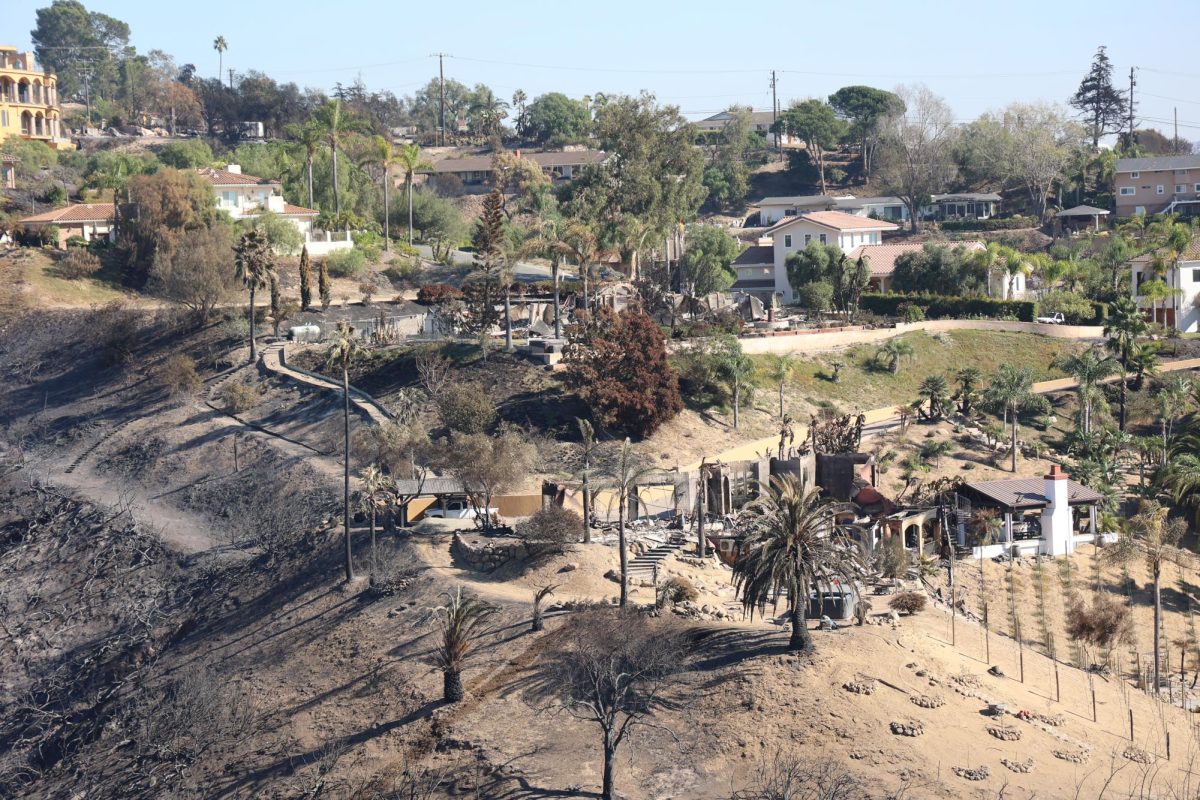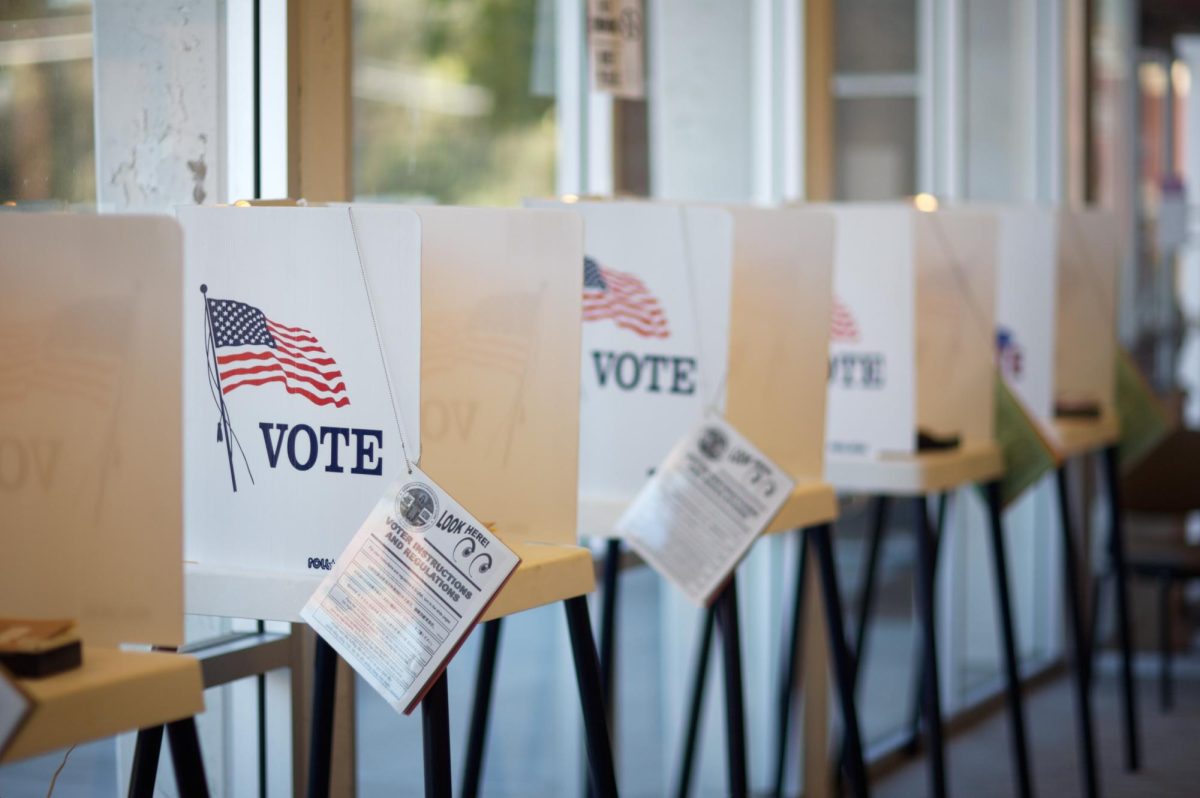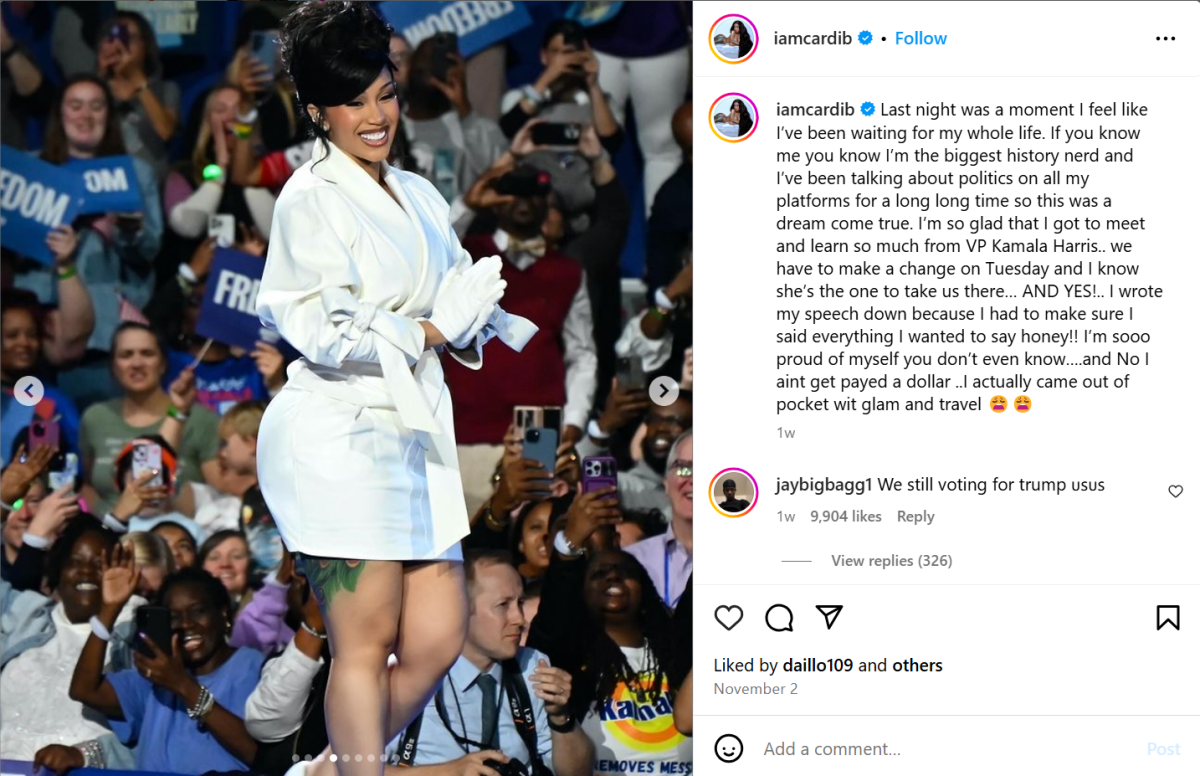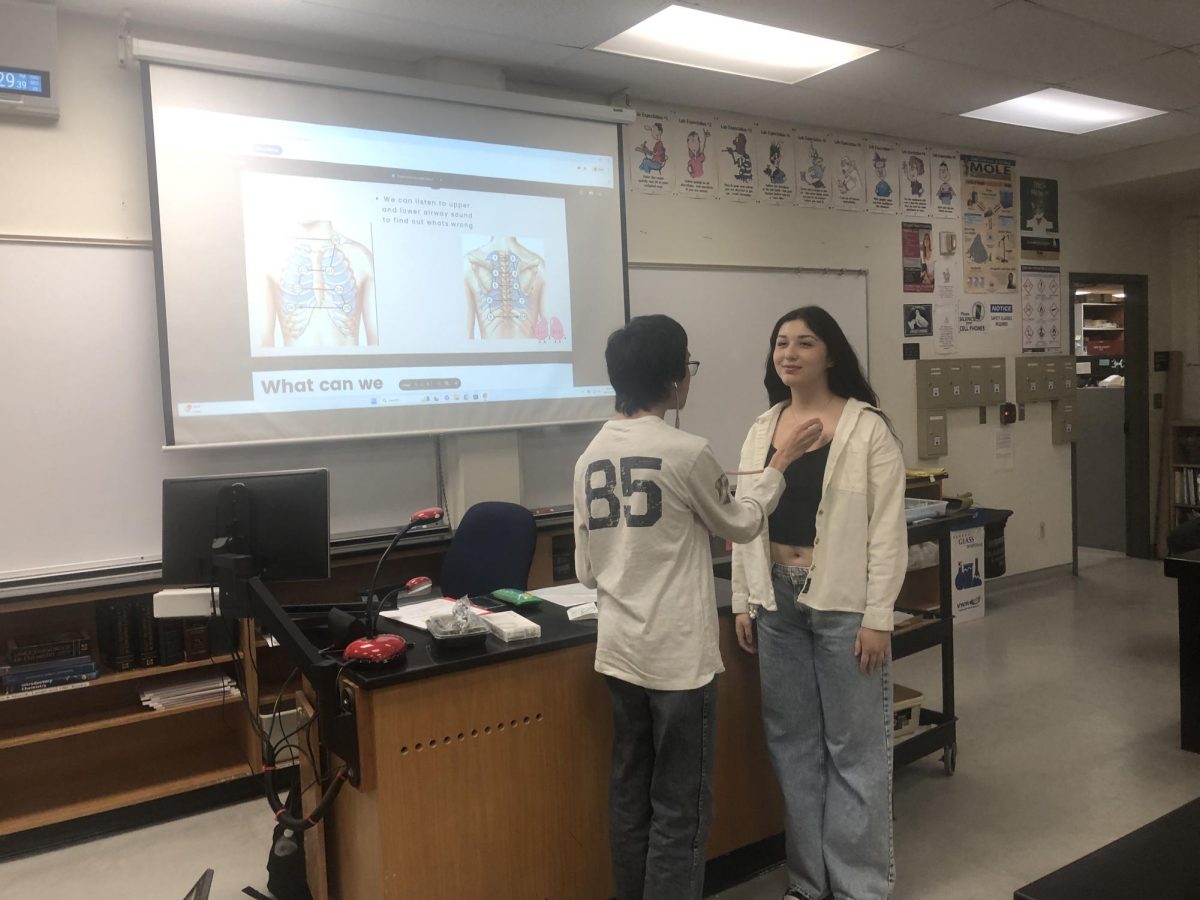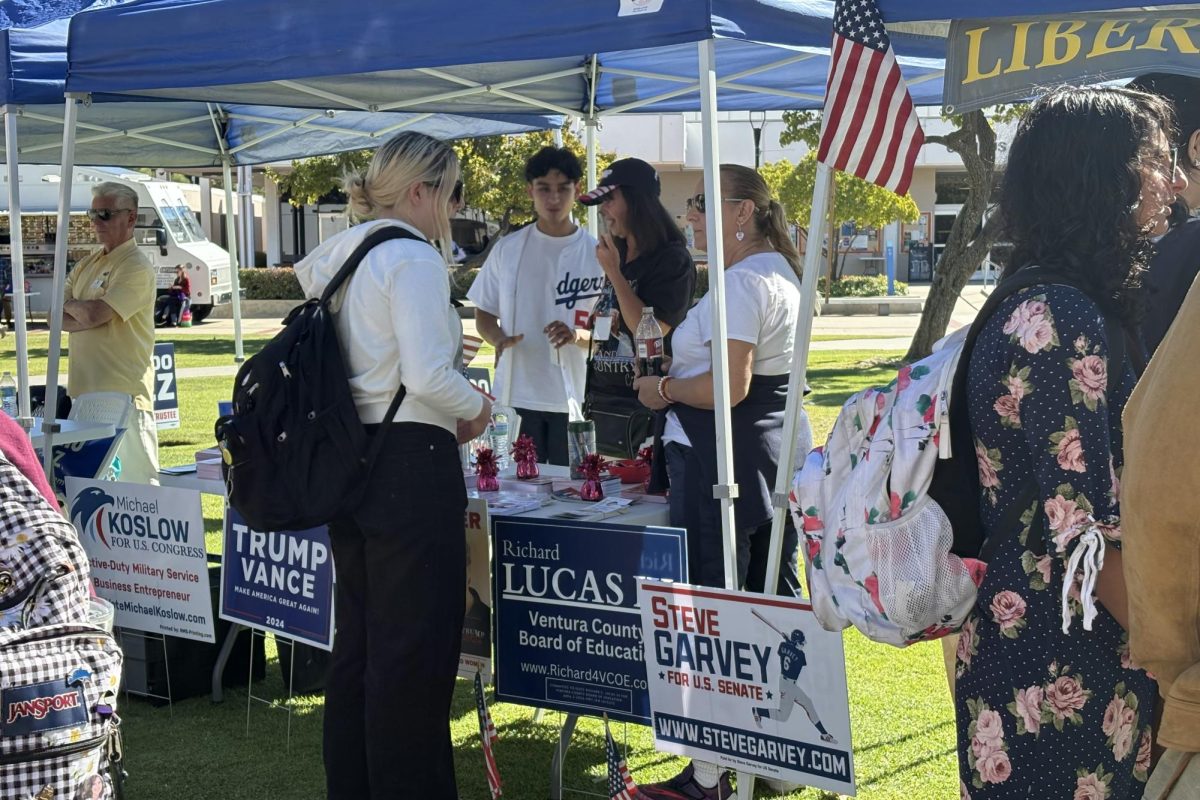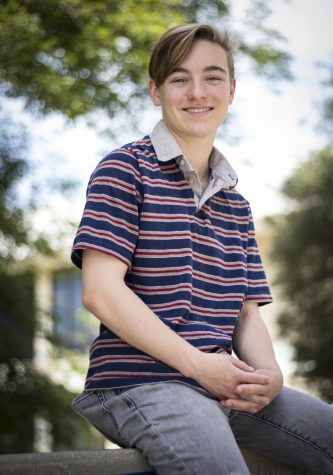Terisa Siagatonu is an Oakland-based traveling poet and educator. She uses her poetry to teach people about her identity as a first generation, queer, Samoan woman. Siagatonu said she was invited to speak at Moorpark College and accepted the invitation gladly, presenting her poetry to a small crowd of Moorpark students last Thursday at the Forum on campus.
“I’m still alive because I’m not afraid of what I already know wants to kill me,” Siagatonu said passionately at the beginning of one of her poems. “Because I’m a first generation queer Samoan woman…”
Siagatonu was born and raised in San Francisco as an only child. Her father moved to the United States, serving in the U.S. Army for 20 years. Her mother was forced to drop out of community college to take care of her own seven brothers. Siagatonu said that along with the racism she experienced for having brown skin, she couldn’t escape racism in her own Samoan community.
“We (Samoans) use the term ‘meauli’ to mean ‘black person,'” Siagatonu said, talking about how her culture often treats people with dark skin as a ‘thing’ instead of a person. “Meauli is also a hybrid term. ‘Mea’ means thing. ‘Uli’ still means black. What we are saying is black people aren’t even people when translated in my language.”
When she was younger, Siagatonu said she felt pressured by her parents, who both hadn’t gone to college, to succeed in school. She eventually got into UC Santa Cruz for her bachelor’s degree in Community Studies and then later into USC for her Master’s degree in Marriage/Family therapy. Once Siagatonu entered college, she realized higher education was for more than just a degree.
“Being a student was always more than just graduating to get a good job,” Siagatonu said. “I had no other choice. I had to come to school in order to, not just make my family proud, but in order to heal. That I was not just taking up space and spending money just to get a degree.”
Siagatonu spoke about how education is a big struggle in the Pacific Islander community, saying that the percentage of Pacific Islanders who graduate with a Bachelor’s degree is just around 18 percent.
“Each time I walked across the stage to get both my high school diploma and my college degrees,” Siagatonu said, “the weight of my ancestry reminded me that Native Hawaiian Pacific Islanders is one of the fastest growing populations in this country, with some of the lowest graduation rates, and some of the highest high school drop-out rates.”
Siagatonu wrote her first poem while attending UC Santa Cruz. She uses poetry to explore her identity and to connect with others.
“I aim to tell my story,” Siagatonu said. “So that no one ever has to tell it for me.”
Siagatonu said she struggled with her queer identity, and so did her family. She came out in her junior year of college and said it took about a year for her parents to accept her. The support of her extended family made a big difference, helping her parents come around faster.
Brian Sezgin, the president of the Spectrum Club at Moorpark College, attended the event. He said he was very inspired by the work she presented. He now has ideas on how to grow in his position as president and improve the experience of minorities on campus.
Fighting for women’s issues is also one of Siagatonu’s passions. She confronts the oppression women face worldwide in her poems, addressing the injustices of preventing women from education and forcing them to remain silent.
“The greatest untapped resource in every community are the girls and women who are uneducated against their will…” Siagatonu said. “All of us are free when women are free.”
Siagatonu offered advice for those who want to be good advocates to diverse communities.
“I think we often times get into this place of waiting for someone, something, some kind of push, initiative,” Siagatonu said. “When often times, we are the ones we’ve been waiting for… it’s going to come from us, and it’s going to require elbow work.”
For more about Sigatonu, please visit her website.

